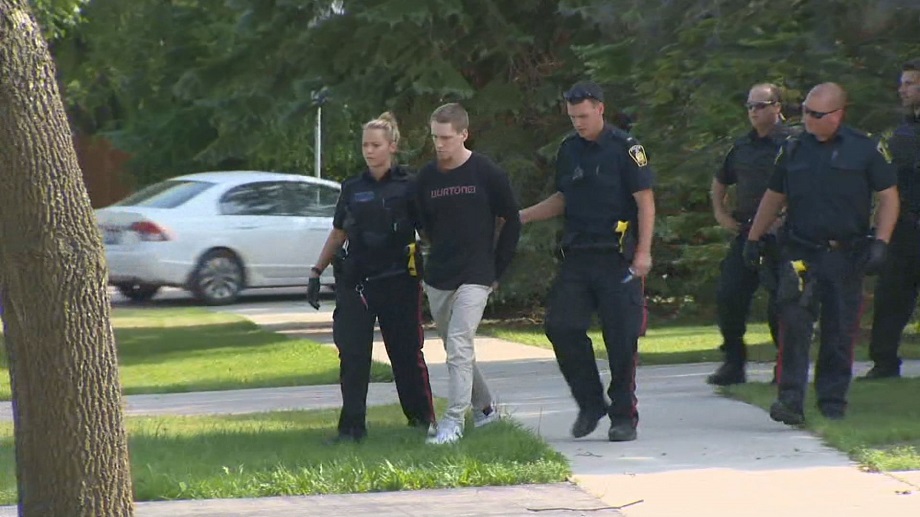WINNIPEG — A charter challenge by a Winnipeg man suspected of planning terrorist activities has been delayed.

Aaron Driver, 23, is not accused of any crime, but federal authorities are trying to limit his activities on suspicion that he might help or engage in terrorist activities.
WATCH: Winnipeg ISIS supporter runs into court Tuesday morning
“This was really an opportunity by the feds to out him, and make a statement,” Driver’s Lawyer Len Tailleur said Tuesday.
Driver has launched a challenge under the Charter of Rights and Freedoms. He remains on bail under a long list of strict conditions as the case proceeds.
RELATED: Winnipeg ISIS supporter released on bail, again
“This is the most conditions I have ever seen, including the GPS device. These actually well beyond peace bond normative, they are now shading into conditional sentence process.” Tailleur added.
During his brief court appearance Tuesday, Driver quietly reading the Qur’an while lawyers discussed the case.
Also in attendance was the Manitoba Association of Rights and Liberties. President and local lawyer Corey Shefman was applying for intervener status.
“The public interest is making sure all our rights are protected because when one of is is stripped of our rights, the danger is that it’s a slippery slope.”, MARL’s Corey Shefman said Tuesday. Adding, “If we don’t stand up for others who we disagree with when their rights are at risk then you have to ask who is going to stand up for us when our rights are at risk.”
The association also said this could set a precedent for future terror related cases.
“This is an important case especially in Manitoba because it’s the first time its brought up. Throughout Canada, this is the first real time we have tested the constitutionality of these provisions.”
A former CSIS Agent and national security expert said Tuesday, “This is the first time ever that we go and force somebody who has not been formerly accused in court to receive bail restrictions,” Michel Juneau Katsuya explained.
Saying this is the first of its kind case in Canada since Bill C-51 was introduced. Legislation critics say loosely defines terrorism and stretches the definition of a security threat.
Juneau Katsuya suspects Ottawa may proceed with the controversial legislation anyway.
“Some aspects of the law can be constitutionally challenged and they know they will be challengesd. But the rational is, they will still implement it, it will take years before it will go to the Supreme Court and they will do what they want until they hit that point, ” Juneau Katsuya said.
The case of Aaron Driver was put over to July 20th, when a date may be set for the challenge.
Driver is out on bail, provided he stay in Winnipeg, possess no computers, own no objects with Islamic State logos or slogans and avoid social media.




Comments